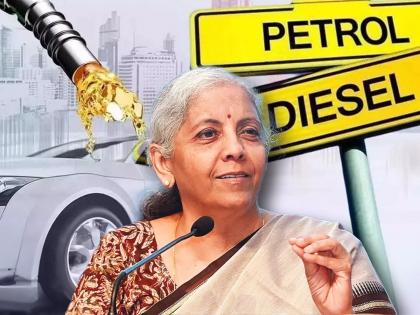Union Budget 2025 Expectations: Will Income Tax Exemption and Fuel Price Reductions Ease Burden on Common Man?
By Lokmat English Desk | Updated: December 30, 2024 11:56 IST2024-12-30T11:54:50+5:302024-12-30T11:56:36+5:30
The past year has been a challenging one for the general public, with inflation impacting both the stock market ...

Union Budget 2025 Expectations: Will Income Tax Exemption and Fuel Price Reductions Ease Burden on Common Man?
The past year has been a challenging one for the general public, with inflation impacting both the stock market and the vegetable market. Hopes for cheaper loan installments also proved to be short-lived. However, there is optimism for relief in the coming year, as the country’s budget is set to be presented in February, with preparations already underway. Industry bodies and experts are offering a range of suggestions to the Finance Minister, including calls for income tax exemptions and reductions in fuel taxes, among other proposals.
The Confederation of Indian Industry (CII) has recommended a reduction in excise duty on fuel as part of its suggestions for the general budget for the financial year 2025-26. The industry body said that such an exemption could help increase consumption, particularly among lower-income groups, as rising fuel prices are contributing to higher inflation. Additionally, CII proposed an income tax exemption for personal income up to Rs 20 lakh annually. The body argues that lowering income tax will put more money in the hands of the public, thereby boosting market demand and ultimately increasing government revenue.
Excise Duty on Fuel and Inflation
Currently, a 21% excise duty is levied on petrol, while diesel attracts an 18% central excise duty. These rates have remained unchanged since May 2022, despite a nearly 40% decline in global crude oil prices. The CII suggests reducing excise duty to help lower inflation and increase disposable income. CII recommends introducing consumption vouchers for low-income groups to stimulate demand for specific goods and services. Additionally, the industry body has called for an increase in the annual payment under the PM-KISAN scheme, from Rs 6,000 to Rs 8,000, to further support rural households.
Reforms to Enhance Electronics R&D
The Electronics and Computer Software Export Promotion Council (ESC) has proposed further reforms to make the Design Linked Incentive (DLI) scheme more comprehensive and impactful. During a recent meeting with Finance Minister Nirmala Sitharaman, the industry body said the need to promote research and development (R&D) and innovation in the capital electronics hardware sector. ESC has also requested additional income tax exemptions for Indian companies that allocate more than 3% of their turnover towards R&D and filing patents/designs in India.